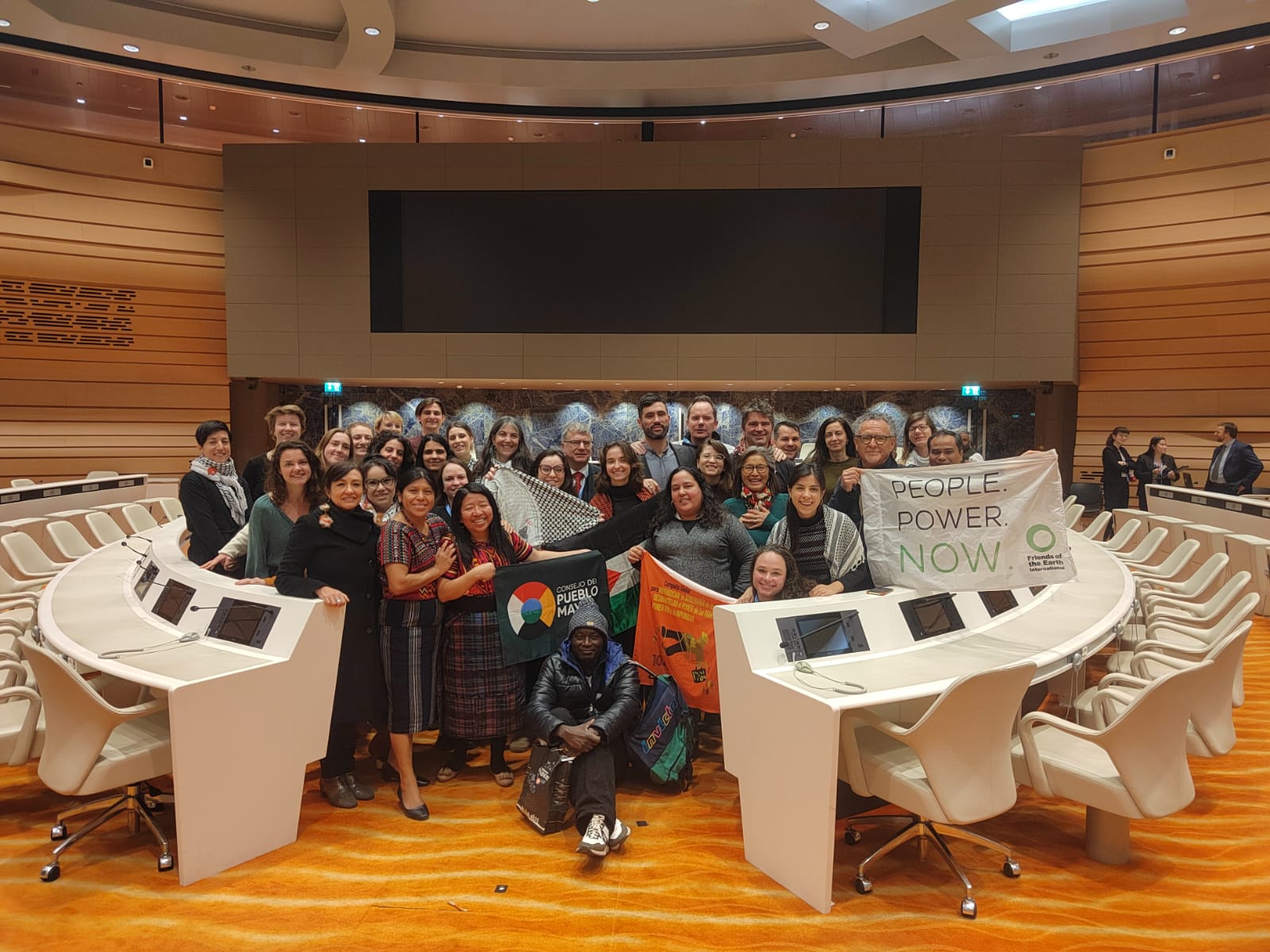Geneva: UN Negotiations for Binding Treaty on Transnational Corporations Make Historic Progress Amid Challenges

The 10th session of negotiations for a United Nations treaty to hold transnational corporations (TNCs) accountable for human rights violations has concluded in Geneva, Switzerland. This pivotal event represents a significant step toward justice for communities affected by corporate crimes, even as the process faces persistent obstacles, including corporate lobbying and limited access for civil society.
The Urgent Need for a Binding Treaty
In the context of ongoing crises such as the genocide in Palestine, forced displacement driven by large-scale energy projects, and widespread corporate land and water-grabbing, the necessity of a Binding Treaty has never been clearer. This year, discussions focused on protecting the rights of victims and communities affected by TNC activities, while ensuring corporations are held liable throughout their global value chains. Civil society coalitions and several states emphasized the need to guard against corporate influence undermining the process.
The Global Campaign to Reclaim Peoples’ Sovereignty, Dismantle Corporate Power, and Stop Impunity played a vital role in amplifying the voices of affected communities and social movements during the negotiations. [Read the Global Campaign’s press release.]
“Reflecting on the past decade of negotiations, we recognize the historic significance of this process and the progress made toward securing justice for those harmed by corporate crimes,” said Maxine Bezuidenhout from the Alternative Information and Development Centre. “This session marked a departure from obstructionism, with the new Chair showing genuine commitment to facilitating negotiations.”
Barriers to Participation
Despite progress, communities affected by corporate crime and their advocates faced significant challenges in accessing the negotiations. These included last-minute changes to the session dates and the influence of corporate representatives.
Pablo Fajardo of UDAPT/Friends of the Earth Ecuador highlighted these hurdles: “Affected communities are the heart of this Treaty, and we refuse to be sidelined. Our journey began decades ago with Peoples’ Tribunals and a Peoples’ Treaty. Now, we’re stronger than ever in this 10th session.”
Corporate Influence Under Scrutiny
The presence of corporate representatives, often cloaked as civil society via business associations, sparked heated debates. Critics argued this undermines the integrity of the negotiations.
“It is unacceptable for transnational corporations to masquerade as civil society while continuing to perpetrate human rights abuses,” said Pierre Maison of La Via Campesina. “The progress we’ve made on the Treaty is clearly unsettling for them.”
This sentiment was reinforced when a dramatic incident unfolded: a representative of the International Organization of Employers (IOE), whose nameplate had been altered to read “TNC Lobby,” was recorded threatening Global South states with divestment. The revelation led to a tense moment, culminating in the IOE delegate hastily leaving the room.
Pushing Forward
As the session concluded, discussions centered on methodologies for intersessional work and strategies to sustain momentum. Members of the Global Campaign closed the session by highlighting the need to safeguard the Treaty’s development from corporate capture.
“Only corporations violating human rights should fear criminal liability,” stated Juliana Rodrigues de Senna of the Transnational Institute. “One important consequence of the Treaty would be precisely to weed out investments that result in the exploitation of our peoples, our lands and our resources. While TNCs count the profits, the communities count the dead. It is the mandate of the Binding Treaty to stop it.”, she added.
Looking Ahead
As preparations begin for the 11th session, the Global Campaign remains resolute in its mission to counteract corporate influence and advocate for an ambitious Treaty.
“To allow transnational corporations any say in their regulation is like letting the fox guard the henhouse,” warned Letícia Paranhos of Friends of the Earth International. “If this Treaty is to have real impact, it must remain free from corporate interference at every stage.”
Looking ahead to 2025, the Global Campaign is well-positioned to continue resisting the influence of corporations, TNC lobbies, and the states that support them. An ambitious treaty that prioritizes human rights over corporate profits now appears within reach, offering hope for justice to billions of people affected by corporate power.
